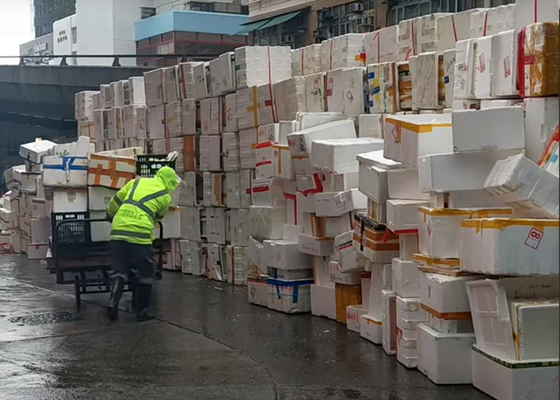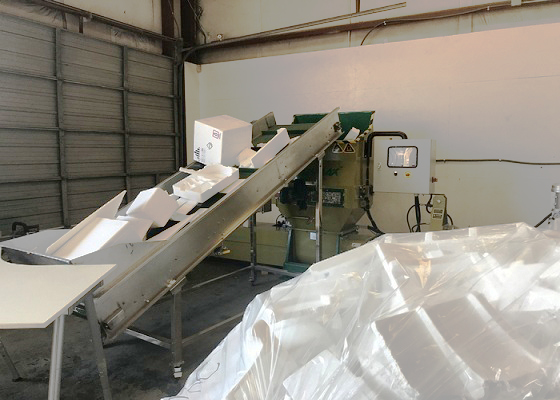With the improvement of environmental awareness and the advancement of resource recycling technology, using EPS melting machine to recycle EPS vegetable boxes has gradually become an effective and sustainable solution. This can not only reduce environmental pollution, but also save resources and create economic benefits.
EPS Vegetable Box Challenge
EPS vegetable boxes are usually used for packaging and transporting vegetables. They are widely used due to their lightweight, waterproof, and thermal insulation properties. However, EPS materials are difficult to degrade and can easily cause serious white pollution to the environment if not handled properly. Traditional landfill and incineration methods not only waste resources but also have a negative impact on the environment.

The EPS melting machine melts the EPS material into higher density blocks through heating. These melted blocks are greatly reduced in size, making them easier to store and transport, and can be used as recycled material to make new plastic products. The EPS melting machine can reduce the volume of EPS waste by more than 90%, greatly saving storage and transportation space. Recycled EPS materials can be used to produce various plastic products, such as building materials, decorative materials, etc., to achieve resource recycling.

Using EPS melting machine to recycle EPS vegetable boxes is an environmentally friendly and efficient resource recycling method. Through effective collection, classification, crushing, melting and regeneration processing, not only can white pollution be greatly reduced, but waste can also be converted into valuable renewable resources. With the continuous advancement of technology and the improvement of environmental awareness, EPS melting and recycling will play an increasingly important role in the future and contribute to the realization of sustainable development.